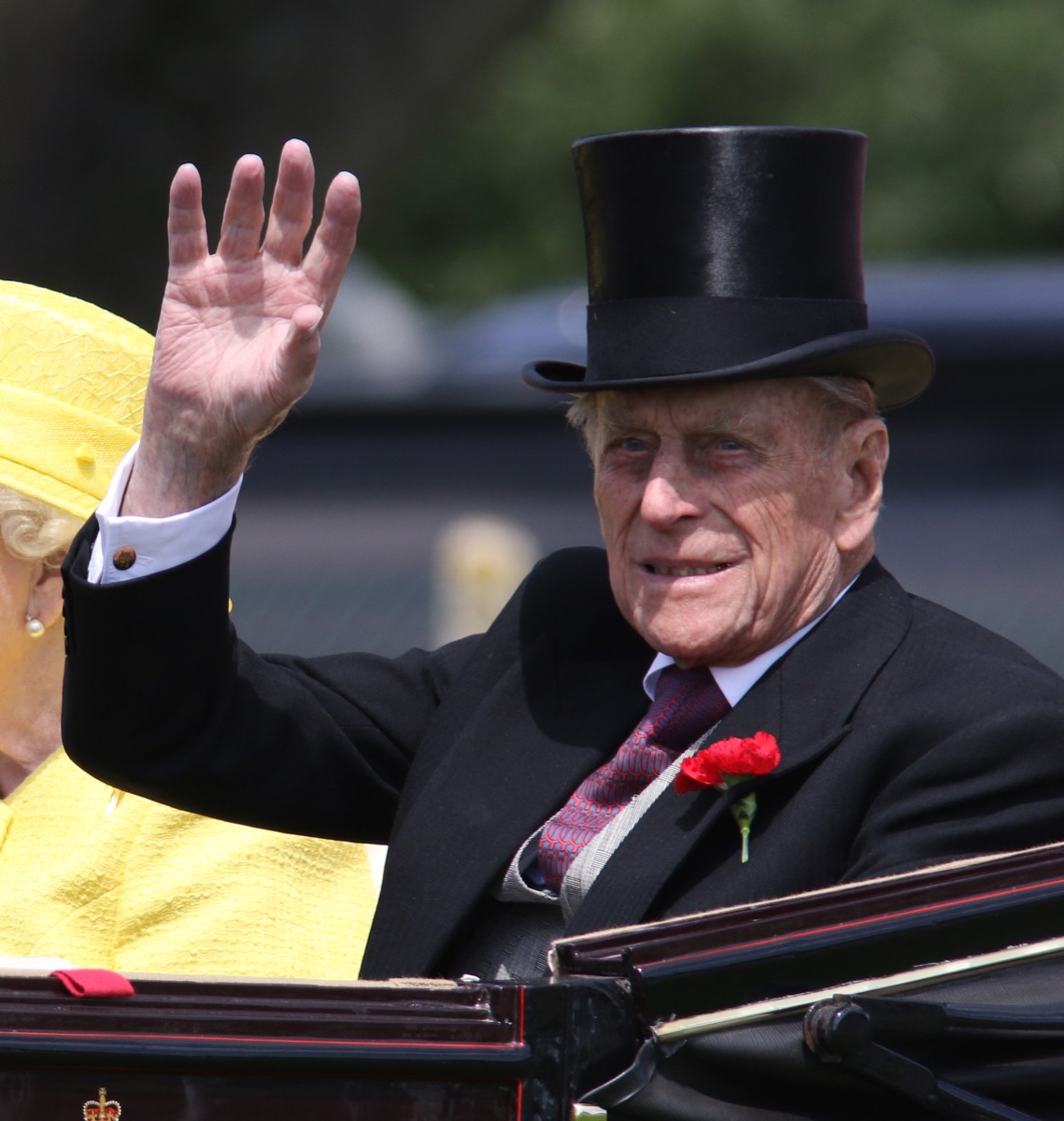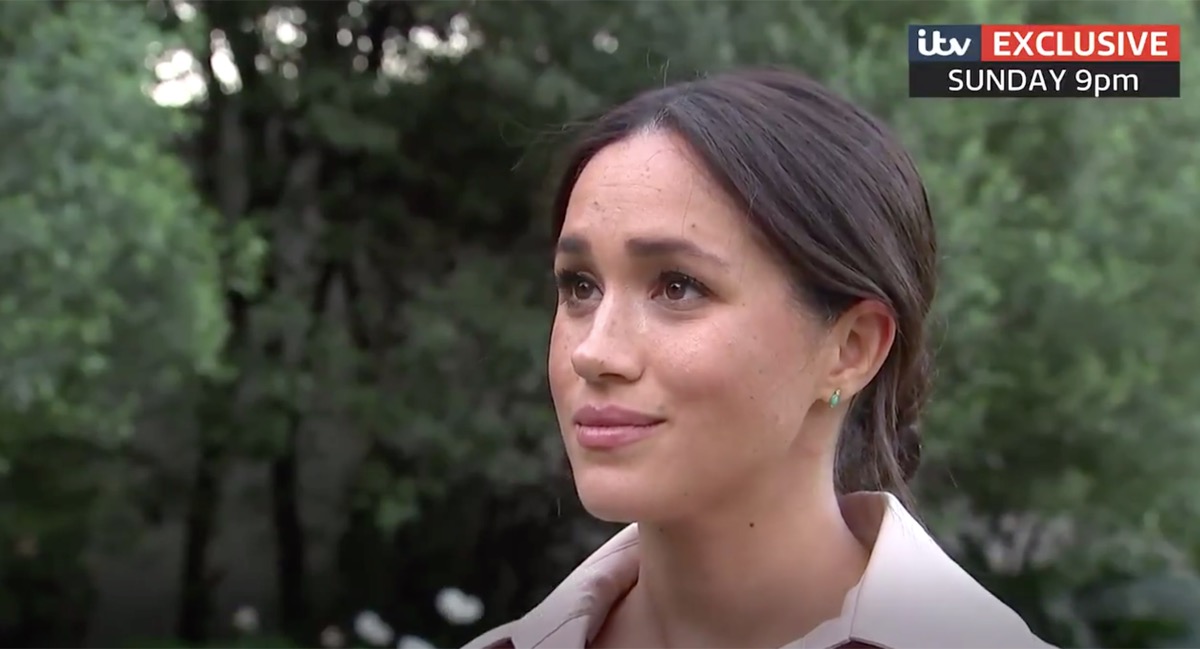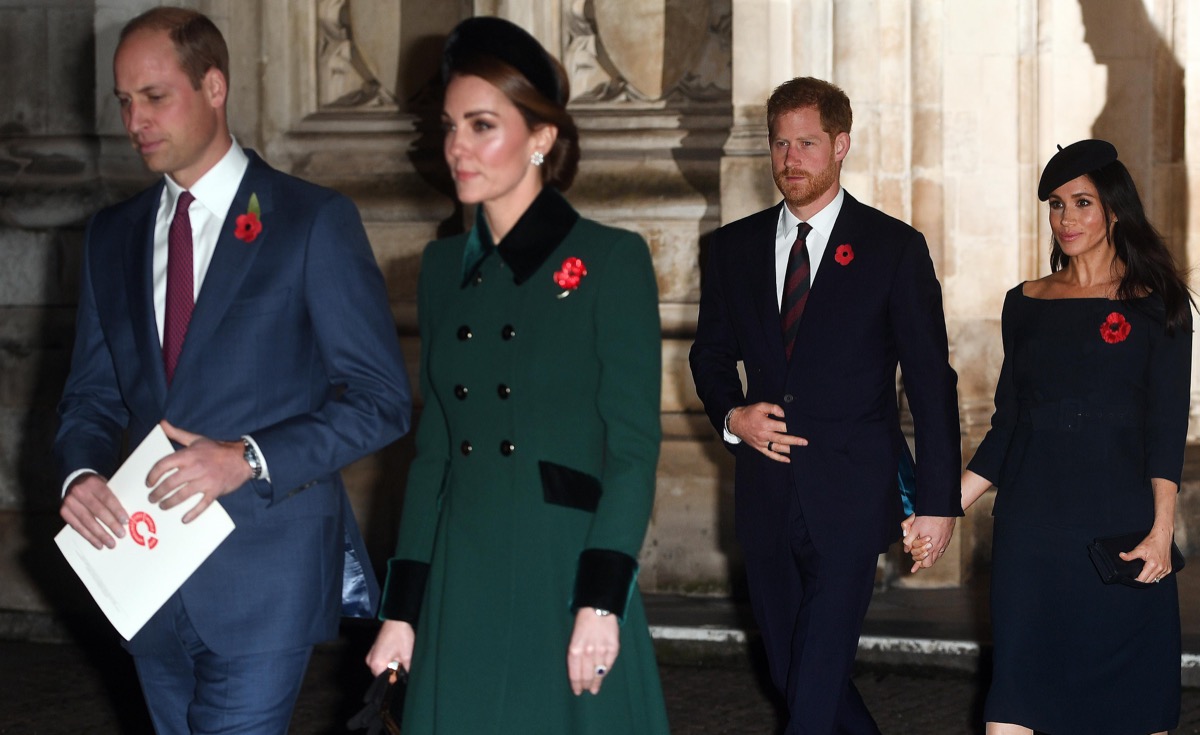The last time the Queen had a year this bad was 1992, which she famously dubbed an “annus horribilis.” It also happened to be her 40th year on the throne. In a speech at Guildhall marking the anniversary of her accession, she told the sympathetic audience, “1992 is not a year on which I shall look back with undiluted pleasure.” At the time, Her Majesty was referring to the very public implosion of two of her sons’ marriages. In January of that year, Prince Andrew and Sarah Ferguson announced their separation after six years of marriage. Then Fergie, who was already on the outs with the family, reportedly infuriated the Queen in August when photographs of the Duchess sunbathing topless with her “financial manager,” John Bryan, appeared on the front page of the Daily Mirror. The errant Duchess was promptly summoned to the Palace, read the riot act, and banished for good. (Prince Harry’s wedding to Meghan Markle was the first time Prince Philip had been in the same room as Fergie since then.) A few months later in December, then-Prime Minister John Major made the announcement in Parliament that Prince Charles and Princess Diana had officially separated.ae0fcc31ae342fd3a1346ebb1f342fcb It’s unlikely that the Queen will directly address any of the catastrophes she’s had to face in 2019 in her televised Christmas address to Britain (Palace sources say the Queen is “finding it hard” to write this year’s remarks). But here’s a recap of the events that have made 2019 a royal pain for Her Majesty, from bad to worst. In January, Prince Philip made headlines when the armor-plated Land Rover he was driving collided with a minivan carrying two women and a nine-month old baby on a public road near the Queen’s Sandringham estate. While the royal’s car flipped on to its side and a witness told the BBC that he appeared “obviously shaken,” the prince emerged unscathed. Emma Fairweather, one of the women in the other car, sustained a broken wrist and the other passenger suffered cuts and bruises to her knee. The baby was unharmed. After the accident, Philip left the scene and later explained it was because he had been advised to do so by a local police officer. He was not charged. After Fairweather made the rounds on television complaining about the prince’s actions, The Sunday Mirror reported that she received a hand-delivered note of apology. “I would like you to know how very sorry I am for my part in the accident at the Babingley cross-roads,” the prince wrote. “I have been across that crossing any number of times and I know very well the amount of traffic that uses that main road … I can only imagine that I failed to see the car coming, and I am very contrite about the consequences.” But that was cold comfort when just two days after the crash, Philip was spotted driving without a seatbelt. Several media outlets in Britain questioned whether the prince, who retired from public life in 2017, should still be driving. Three weeks after the accident, it was decided that Philip would permanently surrender his driving license. “The Queen had been concerned for some time about the Duke’s insistence on driving himself, but it’s mostly been on estate grounds,” said a royal source. “She was upset about the accident and she knew it was time to do something. The Duke was very disappointed, but he agreed that the time had come.” As any fan of The Crown knows, the Queen meets regularly with the prime minister to talk over the important events affecting the U.K.’s political landscape. While Her Majesty is a constitutional monarch who does not make or decide the law, due to an idiosyncrasy in Britain’s constitution, only she, as Queen, can suspend Parliament. In September, at the height of the Brexit crisis, Prime Minister Boris Johnson requested the Queen do just that because, he claimed, it was necessary in order for him to properly prepare for new legislative agenda before the new session began. Her Majesty gave her permission to suspend Parliament until the end of October (the longest since World War II), but the highest civil court in Scotland ruled that both the advice and the suspension were unlawful. The high court ruled the real motive for the suspension was so Johnson could avoid scrutiny over his Brexit plans. The British media accused him of lying to the Queen, which he vehemently denied. But Johnson didn’t stop there. In mid-October, he somehow convinced the Queen to deliver the traditional post-election “Queen’s Speech” (which is always written by the prime minister’s speech writers) to the House of Lords before one ballot was cast. Historically, this is done to set out a new legislative agenda for the government that has won the majority. Many constitutional experts and political commentators in the U.K. accused Johnson, who recently won the general election, of using the Queen to pitch the Conservative party’s manifesto and, in effect, be a political shill. The Sun reported all this has led to Johnson’s relationship with the Queen to hit “rock bottom.” From the moment it was announced that Meghan Markle would be the first fiancée invited for Christmas at Sandringham, insiders speculated that the soon-to-be royal was a new “favorite” of the Queen. But the events of 2019 seem to tell a different story. First, Meghan and Harry set the date of baby Archie Mountbatten Windsor’s baptism without consulting the Queen, resulting in a scheduling conflict that kept Her Majesty from attending the service. Then came the news that the new parents had declined the Queen’s invitation to spend part of their summer vacation at Balmoral because they were too busy preparing for their upcoming royal tour. Meghan did, however, find the time to fly to New York for the weekend to see her friend Serena Williams play in the U.S. Open. But all of that was nothing compared to the PR nightmare that ensued as a result of Harry and Meghan’s October interview with ITV’s Tom Bradby, during which the couple turned a documentary about their royal tour of Africa to an airing of grievances about the restrictions and pressures of royal life. According to my sources, the Queen was “quite surprised” by the couple’s candid remarks. “It was quite hurtful,” the insider said. “Her Majesty has made every effort to make the Duchess feel as welcomed as possible; for Meghan to insinuate that the family hasn’t been supportive saddened her.” There was also Harry’s scathing announcement earlier in October, chastising the press over what he considers negative coverage of Meghan, which coincided with the couple’s announcement they were suing The Mail on Sunday. That also didn’t sit well with the Queen. “The overall feeling at the Palace was that it was all very aggressive action and ill-timed,” the insider added, referring to the fact that the news broke near the end of the couple’s otherwise successful tour of Africa. Finally, in November, it was announced that the Sussexes would be taking a “much needed” six-week break and spend the Christmas holiday away from the royal family this year. “The Queen was supportive because Harry and Meghan are clearly struggling, but she’s done all she can for them,” my source said. “It was disappointing nonetheless.” It was rumored for months and no one wanted to believe it was true but, in 2019, we learned there is, in fact, a royal rift between Prince William and Prince Harry and it appears to be widening. As I reported earlier this year, insiders say the Queen had become so concerned about the fraying relationship of the once closer-than-close brothers, she asked Prince Charles to do whatever necessary to put an end to the sad split between his sons. One royal insider told me, “It saddens Her Majesty to see William and Harry at odds like this.” Sources say the chill between the two princes started when William suggested that Harry might be moving too fast on his way to the altar with Meghan. But all seemed fine at the royal wedding between the two men who the world had come to know as “Diana’s boys.” “The Queen was hopeful that after the wedding, things would calm down and the hard feelings would have faded away,” said my source. “But things have gotten worse. This is very upsetting to Her Majesty. She loves both her grandsons equally and knows how important a good relationship with one’s siblings is to a new monarch to help stay the course. Prince William’s destiny is to become King of this country. If things continue as they are, it’s unlikely Harry will be there for his brother in the way that the Queen has always hoped he would be.” Clearly, the worst crisis the Queen has had to deal with this year resulted from Prince Andrew’s decision to give an hour-long interview to the BBC to discuss his relationship with convicted sex-offender Jeffrey Epstein, during which he denied the allegations made against him by Virginia Roberts Giuffre. The spectacular fall from grace of the Queen’s reportedly “favorite” son has rocked the House of Windsor to its core. While the Queen offered Andrew a show of support by attending church with him the day after the interview aired, public outcry forced her to consider how the growing furor over the prince’s disastrous interview could impact the future of the monarchy. The result was the bombshell statement that Andrew would “step back” from public duties and his office was removed from Buckingham Palace. “This has all been very, very hard for Her Majesty,” said one Palace insider. “The Duke has much to answer for since that car wreck interview, but he is still her son. The situation made an already difficult year absolutely dreadful—and the worst part is this scandal isn’t going away any time soon.” Diane Clehane is a New York-based journalist and author of Imagining Diana and Diana: The Secrets of Her Style.




